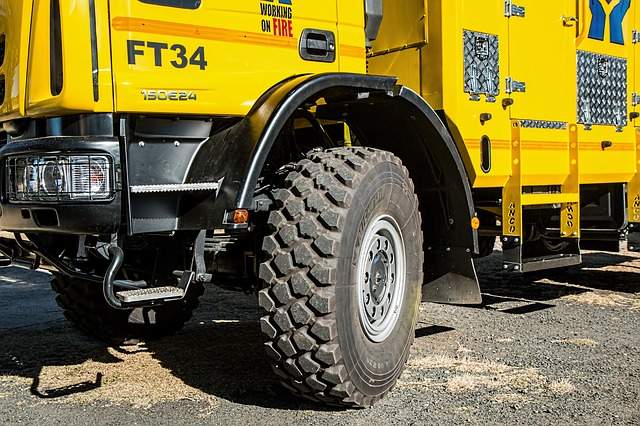
You may have heard a lot of experts advising you to rotate your tyres in a timely manner. Have you ever wondered why tyre rotation is so important? Not rotating the tyres of your car can give can cause severe damage to your vehicle.
Tyre rotation is recommended by all the manufacturers. Although the process is easy and simple, it is among the most neglected tasks. It helps manage treadwear — the damage and scouring tyre takes during normal usage. When you shuffle the tyres of your car, it helps your tyre wear out evenly.
Why Should I Rotate My Tires?
By following the manufacturer’s recommended tyre rotation process — you can increase the chances of even tread wear. If your tyre is wearing evenly, you will experience better handling, fewer vibrations and reduced noise. All these factors contribute to the quality of the ride. Tyre rotation can also help you extend the life of the tyre which means you save a lot of money and time.
What If I Don’t Rotate My Tires?
If you don’t rotate your tyres, the tread wears down roughly and contributes to an unstable and vibrating drive. Eventually, you put your life at risk and comprise your safety. From poor traction to tyre blowouts, not rotating tyres can have a lot of consequences.
Heat Buildup
When you drive your car, heat is generated as the tyre makes contact with the road. A good quality tyre brand like Falken can endure a high level of heat. However, when the tread wear is uneven, there is a chance that your tyre will block the space for cooling airflow. If this happens, the tyre will build excessive heat which can cause blowouts or further tread damage.
Hydroplaning
Hydroplaning happens when your car loses traction in wet conditions. When tyres have adequate tread depth, the deep grooves take water out of the way and maintain an optimal level of traction with the road. When there is not enough tread depth, tyres can lose control in the water.
Poor Traction in Snow and Ice
With deeper, wider, sharper, and more irregular treads, snow tires are designed to improve traction by gripping into packed snow. Driving in winter conditions with insufficient tread depths (or inadequate tires) may increase the risk of spinning out or sliding around on icy roads.
Punctures and Blowouts
When you don’t rotate tyres, they receive excessive strain. A spot on your tyre could begin to wear. If the spot has become vulnerable, it can increase the risk of a blowout if a sharp object like a nail or glass pokes a hole into the rubber.
The benefits of rotating tyres are endless, while not rotating them timely can put your life in danger. Keep these things in mind before you think of skipping the tyre rotation next time.
What is the minimum tread depth to drive safely?
The minimum tread depth to drive safely varies from country to country. In the UAE, UK, USA, and many other countries, it is 1.6mm.
Tyres that have a tread depth of less than 1.6mm are prone to punctures and sudden blowouts. Moreover, these also lose air pressure and affect the car’s fuel economy negatively. Affecting braking and steering, these reduce the ride comfort and are also prone to hydroplane.
If your tyres have a tread less than 1.6 mm, consider changing them immediately.
Thanks to online shopping, you can buy tyres online too. Required, you are sure which one to buy. Whether you are looking for passenger car tyres online or large truck tyres online — you can find a tyre for your vehicle.
You can do a bit of research before you begin the buying process. If you know the size of your tyre, you can explore Falken’s tyre finder tool on their website. It makes it easy for users to find the right tyre for their vehicle. You only need to put the make, model and year of the vehicle.




More Stories
A Guide To Electric Vehicle Charging
Difference Between The Winter And All-Season Tyres
Why Checking Your Tyres Before MOT is Important?